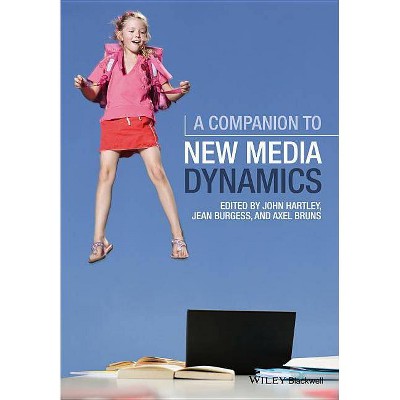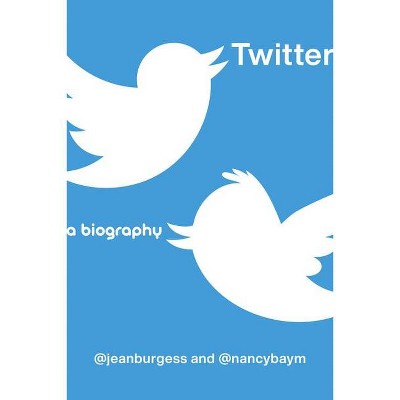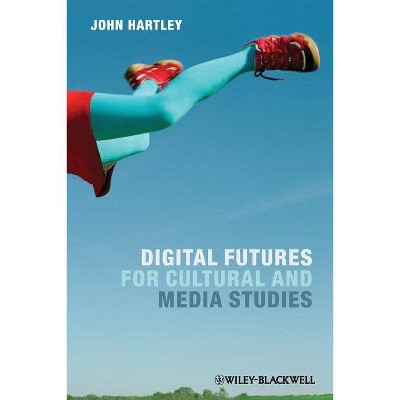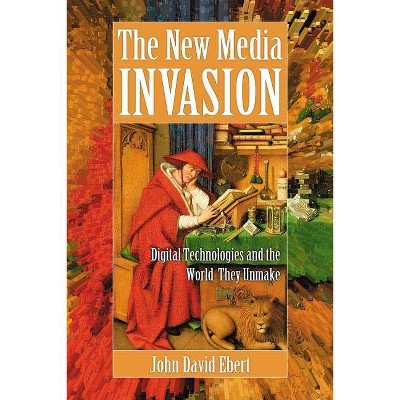A Companion to New Media Dynamics - by John Hartley & Jean Burgess & Axel Bruns (Hardcover)
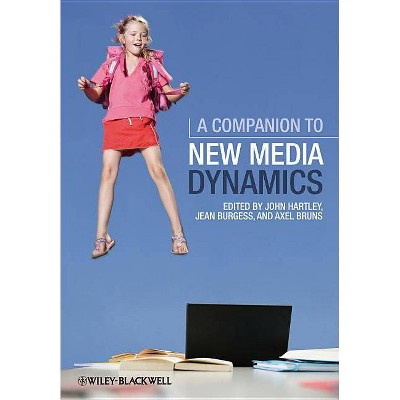
Similar Products
Products of same category from the store
AllProduct info
<p/><br></br><p><b> Book Synopsis </b></p></br></br><i>A Companion to New Media Dynamics</i> presents a state-of-the-art collection of multidisciplinary readings that examine the origins, evolution, and cultural underpinnings of the media of the digital age in terms of dynamic change <ul> <li>Presents a state-of-the-art collection of original readings relating to new media in terms of dynamic change</li> <li>Features interdisciplinary contributions encompassing the sciences, social sciences, humanities and creative arts</li> <li>Addresses a wide range of issues from the ownership and regulation of new media to their form and cultural uses</li> <li>Provides readers with a glimpse of new media dynamics at three levels of scale: the 'macro' or system level; the 'meso' or institutional level; and 'micro' or agency level</li> </ul><p/><br></br><p><b> From the Back Cover </b></p></br></br>With the term 'new media' in use for decades now, one wonders if innovative digital forms and platforms can still be considered 'new' at all. Yet even as the lines have grown blurred between 'new' and 'traditional' media forms, there is much to learn about the dynamics surrounding the growth and adoption of new media. <i>A Companion to New Media Dynamics</i> presents a state-of-the-art collection of multidisciplinary readings that examine the origins, evolution, and cultural underpinnings of the media of the digital age in terms of dynamic change.<br /> <br /> <p>Contributed by an international cast of top researchers, cultural entrepreneurs, and emerging scholars, various chapters reflect on the historical, technical, cultural, and political changes that underlie the emergence of new media, as existing patterns and assumptions are challenged by the forces of 'creative destruction' and innovation, both economic and cultural. At the same time, readings reveal how several of the familiar themes from 'old' media remain - questions of identity, sexuality, politics, relationships, and meaning. Topics explored include everything from the ownership and regulation of new media to their form and cultural uses, including questions of access, agency, and consumer co-creation. Providing a wealth of innovative insights, <i>A Companion to New Media Dynamics</i> is an indispensable resource to the development, current place, and future directions of new media practices within contemporary culture.</p><p/><br></br><p><b> Review Quotes </b></p></br></br><br><p>"Summing Up: Recommended. Graduate and research collections." (<i>Choice</i>, 1 September 2013)</p> <p>"I highly recommend the all encompassing and widely landmark book to any new and old media leaders, entrepreneurs, corporate leaders, technologists, academics, students at both the undergraduate and graduate levels, government officials, public policy makers, nonprofit executives, and anyone interested in the ever changing and dynamic landscape of new media. This book provides insights and ideas that will provide the seed for future change and innovation across the entire new and old media environment." (<i>Blog Business World</i>, 16 March 2013)</p> <p> </p><br><p/><br></br><p><b> About the Author </b></p></br></br><b>John Hartley</b> is Professor of Cultural Science and Director of the Centre for Culture and Technology at Curtin University, Perth, Australia. His books include <i>Creative Industries</i> (2005), <i>Television Truths</i> (2008), <i>Story Circle</i> (2009), and <i>Digital Futures for Cultural and Media Studies</i> (2012).<br /> <br /> <p><b>Jean Burgess</b> is Deputy Director, ARC Centre for Creative Industries and Innovation, Queensland University of Technology. She is co-author of <i>YouTube: Online Video and Participatory Culture</i> (2009), and co-editor of <i>Studying Mobile Media: Cultural Technologies, Mobile Communication, and the iPhone</i> (2012).</p> <p><b>Axel Bruns</b> is Associate Professor, ARC Centre for Creative Industries and Innovation, Queensland University of Technology. He is the author of <i>Blogs, Wikipedia, Second Life and Beyond: From Production to Produsage</i> (2008) and <i>Gatewatching: Collaborative Online News Production</i> (2005).</p>
Price History
Cheapest price in the interval: 209 on November 8, 2021
Most expensive price in the interval: 209 on December 20, 2021
Price Archive shows prices from various stores, lets you see history and find the cheapest. There is no actual sale on the website. For all support, inquiry and suggestion messages communication@pricearchive.us
